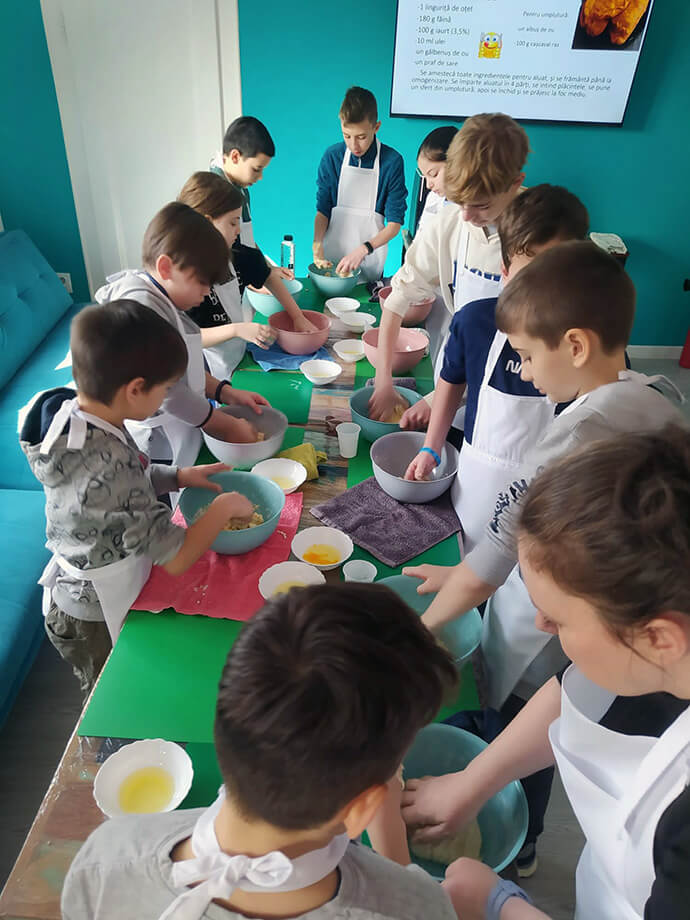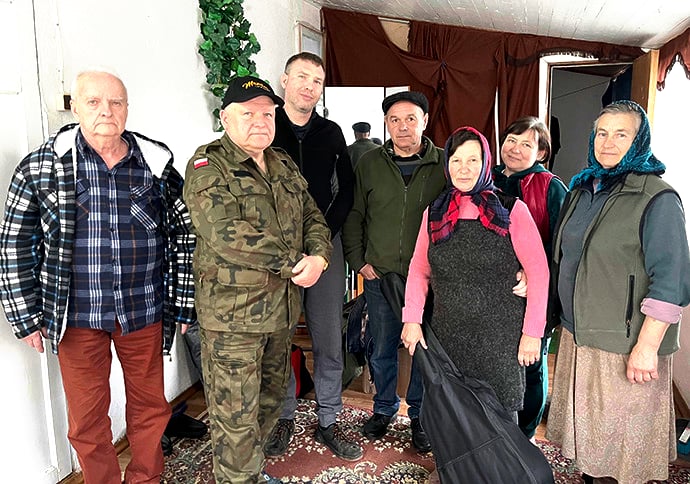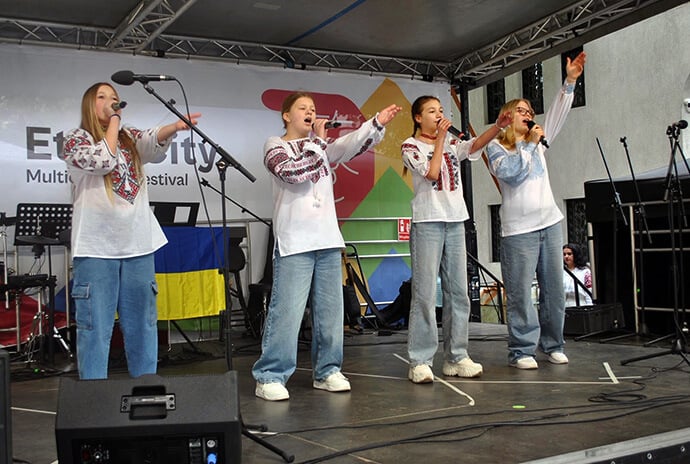Key points:
- The focus of relief efforts for Ukrainians is shifting from emergency relief to helping the victims of the Russian war get comfortable in their new homes in nearby countries.
- The war has been going for nearly 40 months.
- United Methodist churches and people in Poland, the Czech Republic, Hungary and Romania are among the most active helpers.
Help for Ukrainian refugees from the war with Russia is shifting from emergency aid to longer-term assistance in settling into their new homes, local United Methodist Church officials from nearby nations said.
“In Cluj-Napoca (in Romania), we have the Ukrainian hub that offers a place for more than 100 children and youth in extracurricular activities such as art, music, dance, etc.,” said the Rev. Rares Calugar, United Methodist district superintendent in Romania.
“It also now offers Romanian language courses for adults,” he said. “In Sibiu, we are continuing the project ‘Ascendent,’ an after-school program for teenagers where Ukrainian and Romanian youth gather together and learn life skills as well as have time for personal development.”

Nearly 40 months have passed since the Russian armed forces invaded Ukraine and escalated the war that had been smoldering for several years. For some time now, politicians have been holding talks about how a ceasefire could be brought about, or what arms deliveries are needed. But the suffering and death in Ukraine continues, and the longing for a just peace remains unfulfilled.
Millions fled Ukraine after the war began. Churches and individuals with The United Methodist Church in neighboring countries made their buildings available as places of refuge. They provided food, clothing, medical care, accommodations and other help. Aid transports to Ukraine were also organized with food, hygiene products, blankets and heavy equipment for hospitals.
Now, the stream of refugees out of Ukraine has slowed, and Ukrainians relocated to Poland, Czech Republic, Hungary and Romania have made strides toward integration with their new neighbors.
“Many people who have fled Ukraine have long since found a job and an apartment,” said the Rev. Jana Křížova from Prague, Czech Republic. “While they are still supported by the state, they only need material help from The UMC in exceptional cases.
“As the UMC in the Czech Republic, we are in a position to provide the help they need with our own resources.”

The situation is similar in Romania and Hungary. The need for accommodation is greatest in Poland. The number of refugees registered there is 150% greater than in the Czech Republic, Romania and Hungary combined. Fourteen United Methodist churches have housed and helped people in Poland.
“Even if the intensity of the commitment to the people who have fled from Ukraine is decreasing, it must be emphasized that support for them and our commitment are still necessary,” said Szarlota Kamińska, the coordinator of this work in Poland.
Jarosław Bator, a United Methodist pastor in Poland, has been traveling to Ukraine every month for some time now. Initially, the focus was on material aid for the needy in the northeast area of the country. Now his aim is to share the power and comfort of the Gospel with the people. He preaches regularly at two locations in Ukraine, one of which is a hospital. He also meets with people online once a week.
Support is needed that goes beyond the provision of material aid and support for integration measures, Calugar said.

The latest project, developed in a cooperative partnership with political and church leaders, is the production of the first waterproof Bibles for the military in Ukraine to provide a “symbol of resilience and hope” to those who are exposed to the horrors of war on a daily basis. It would be possible to make bibles available online via an app, but because an internet connection could make soldiers an easy target for drone attacks, those responsible for the project have opted for a special form of printed bibles in the modern Ukrainian language.
The commitment to people in Ukraine with post-traumatic stress disorder is a priority for The United Methodist Church in the Czech Republic. They support the organization of 10-day rehabilitation retreats, where widows of fallen soldiers and orphans receive help. This includes rest and psychological and psychotherapeutic support as well as spiritual offerings such as worship services and pastoral care. In 2023 and 2024, a total of 24 such retreats for about 50 people each were held by the partner organization of The United Methodist Church in the Czech Republic. Twenty are planned for 2025.
Subscribe to our
e-newsletter
In addition, the church continues to support hospitals in western Ukraine, which provide important care in the field of surgery and also enable rehabilitation.
In some European countries — not only in Ukraine’s immediate neighbors — Ukrainians are now an integral part of local United Methodist churches, or they form their own congregations and meet in the rooms of United Methodist churches. One such congregation is the Russian-speaking United Methodist congregation in Prague, which has members of Russian and Ukrainian origin.
“We sing in Russian and Ukrainian,” said Eduard Holtman, a member of the congregation. “I try to alternate between these two languages so that people can see that we can have peace in Christ.”
But there’s no escaping that the longing for a just peace in Ukraine is still unfulfilled. And the question “How much longer?” weighs on the people. But signs of hope are becoming visible — not the least through the committed service of people from The United Methodist Church in Poland, the Czech Republic, Hungary and Romania.
Urs Schweizer is assistant to Bishop Stefan Zürcher, based in Zurich.
News media contact: Julie Dwyer at [email protected]. To read more United Methodist news, subscribe to the free UM News Digests.




